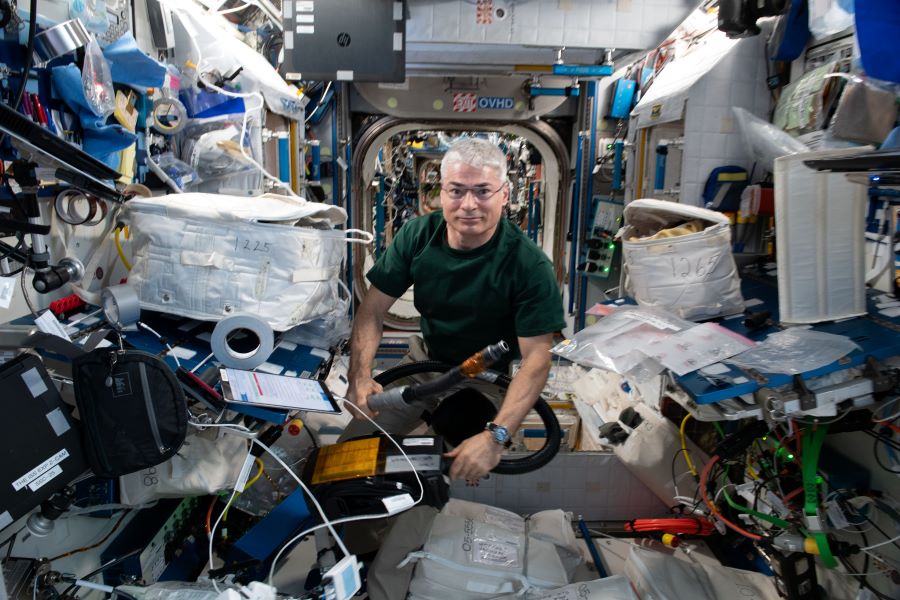Crew Members Carry Out Hardware Installations and Complete Science Experiments

Following the successful undocking of the Russian Progress 77 cargo spacecraft with the Pirs docking compartment yesterday, the Expedition 65 crew aboard the International Space Station continued to work on science and maintenance on the station.
Today, NASA Flight Engineer Mark Vande Hei focused on hardware installation of Extravehicular Mobility Unit (EMU) helmet assembly. He installed and inspected the helmet lights and the Rechargeable ExtraVehicular Activity Battery Assembly, or REBA. He also spent time installing a high-definition camera for the EMU helmet. Commander Akihiko Hoshide assisted Vande Hei with the hardware installation.
In preparation for science operations later this week, NASA Flight Engineers Shane Kimbrough and Megan McArthur prepared the Maintenance Work Area and set up the Plant Water Management (PWM) test stand for the PWM 3 & 4 investigations, which demonstrate passive measures for controlling fluid delivery and uptake in plant growth systems.
Other science experiments included ESA (European Space Agency) astronaut Thomas Pesquet manually injecting algae on Cell Science-04 cassettes as part of the Cell Science-04 algae injection operations. In addition, Hoshide and Pesquet took turns on experiment runs for the Investigating the Structure of Paramagnetic Aggregates from Colloidal Ellipsoids, or InSPACE-4. This investigation looks into the assembly of tiny structures from colloids using magnetic fields and could shed light on how to harness nanoparticles to fabricate and manufacture new materials.
The crew, including Hoshide, Vande Hei, Kimbrough, McArthur, and Pesquet, filled out questionnaires as part of the Human Research Facility Veg study, which focuses on the overall behavioral health benefits of having plants and fresh food in space — like the various plants grown aboard the orbiting outpost thanks to other microgravity investigations.
Ahead of NASA’s Boeing Orbital Flight Test-2 (OFT-2) mission, Hoshide and Kimbrough completed additional training to familiarize themselves with Starliner rendezvous and monitoring procedures.
On Thursday, July 29, the space station is set to receive a new module in the form of Russia’s Multipurpose Laboratory Module (MLM), which is scheduled to dock to the station at 9:24 a.m. EDT. Named Nauka, after the Russian word for “science,” MLM launched on July 21 and will serve as a new science facility, docking port, and spacewalk airlock for future operations.
from Space Station https://ift.tt/3xcOghc
Comments
Post a Comment